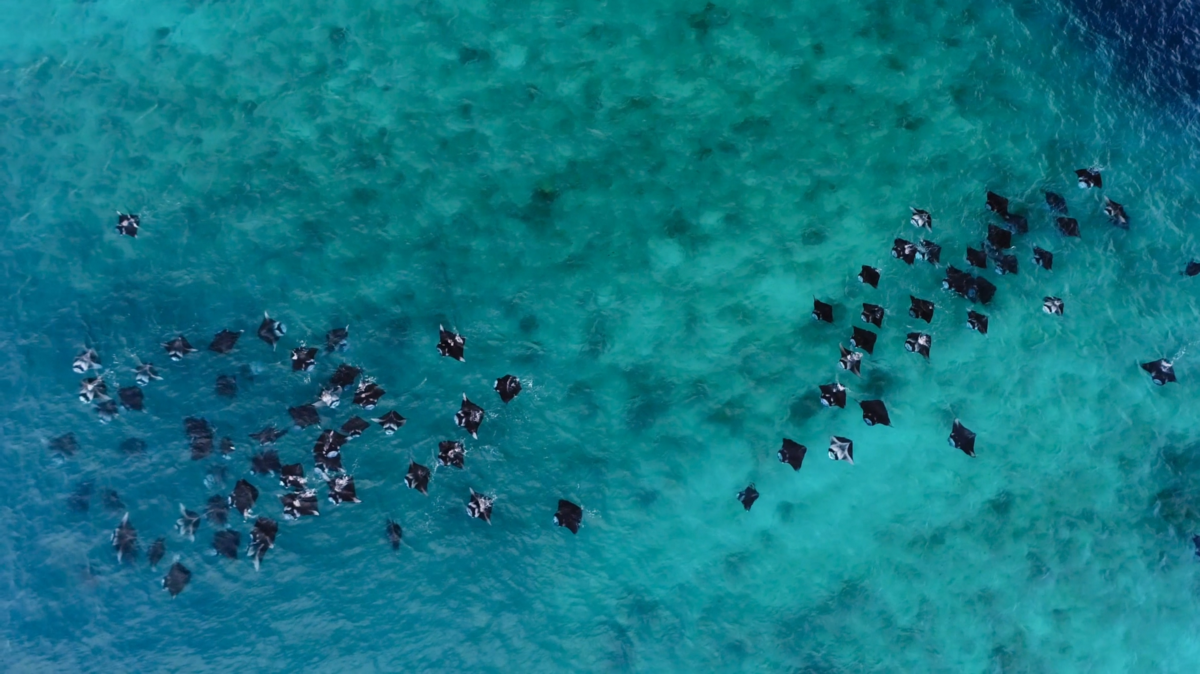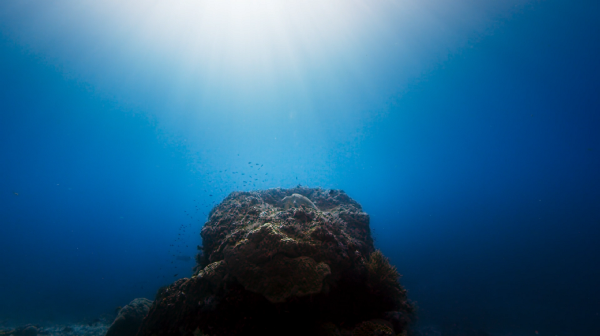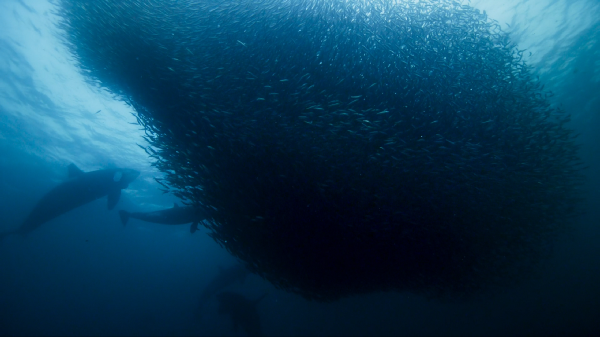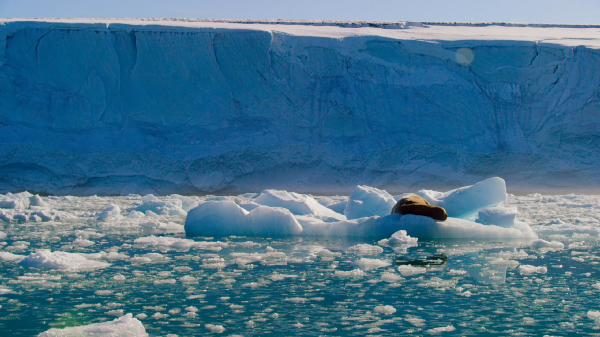 Our blue planet
Our blue planet
There are only a handful of TV shows that leave my jaw wide open throughout watching the lifespan of a show’s season…and Blue Planet II is one of them. I felt like I was constantly being pelted by an array of breathtaking footage and mind-blowing facts about our ocean’s ecosystem.
Each episode’s journey is divided into two parts, each narrating its own tale.
Part I
Part I shows us unreal footage of our ocean with David Attenborough’s silky, voiceover commentary: an experience I would think similar to being soothed by the songs of the Sirens.
The footages gift us with the ability to empathize with our marine friends by being edited in a way to maximize the chances of obscuring the background noise in the environment in which we are viewing the episodes: to strengthen the tunnel vision that made worrying about our daily problems impossible. This effect allows us to easily digest information about the organism’s idiosyncrasies, the tools they use, and the beneficial relationships they form amongst different organisms.
 Migrating manta rays
Migrating manta rays
 A turtle’s day at the spa
A turtle’s day at the spa
 Shock wave utilizing orca going hunting
Shock wave utilizing orca going hunting
In addition, Part I does not shy away from our oceans’ environmental emergencies, warning us about the effects of air and plastic pollution.
 Walruses suffering from climate change
Walruses suffering from climate change
 8 million tons of indestructible plastic dumped into the ocean annually
8 million tons of indestructible plastic dumped into the ocean annually
For the first time in the history of humanity, one species has the future in the palm of its hands. I just hope he realises it. -Sir David Attenborough
Part II
Part II is a visual diary of the Blue Planet II crew, showing us glimpses into the crew’s dailies. Not only do we now see the struggles of the marine organisms in Part I, but also the struggles of the crew in Part II. CBC News stated that the crew spent over 4 years shooting 6000+ hours of underwater dive footage over 125 expeditions!
 Spending 3 weeks to find…nothing
Spending 3 weeks to find…nothing
Each of the various topics Blue Planet II cover in Parts I & II are the perfect inputs to Baruch Spinoza’s logistic regression, resulting in the ability to think globally under the aspect of eternity: sub specie aeternitatis.
Baruch Spinoza
Baruch Spinoza was a 17th century, Dutch philosopher that truly embraced psychological and ethical egoism. Spinoza believed that there are many external forces, the laws of the universe, that subconsciously influence everyday decisions we make in our lives. These uncontrollable laws show no discrimination to favorable outcomes and cannot be disjointed from our own realities.
We may always feel the need to upgrade to the latest tech not because of our own reasons, but because society does so. The way we act and what we believe in are both heavily influenced by our country of birth. Accidents happen. Years of planning can be undone within seconds.
Sub Specie Durationis
If these external forces cannot be controlled nor dispelled, Spinoza’s proposal was to turn to something we can control: our personal evaluations of the external and our relationships with them. Spinoza thought that we must all pursue knowledge in order to properly evaluate our external relationships. Therefore, he believed anything we do in this world is to ultimately seek out knowledge that benefits only ourselves. However, he never thought this pursuit to be a selfish act. Rather, it is a right we are given at birth.
This type of internal knowledge that we seek for ourselves for self-happiness and self-knowledge is sub specie durationis, under the aspect of time. Our knowledge of our favorite foods and the hobbies we enjoy will expire over time. This knowledge is an irrelevant variable, relative to the laws of the universe.
Sub specie durationis is humanity’s perspective on reality.
Sub Specie Aeternitatis
Spinoza stated that there is another kind of knowledge we should seek out sub specie aeternitatis, under the aspect of eternity. We must seek the knowledge of natural law, the rights and rules that are endowed by the universe.
However, Spinoza saw a catch-22. How can we truly discover self-happiness if we are to shift our focus from ourselves to the laws of the universe? Besides, that shift would hinder our pursuits for money and social media likes, right?!
Spinoza was able to untangle these conflicting thoughts by concluding that true self-happiness does NOT come from a lot of money or popularity. In other words, self-happiness does not come from the indefinite search for finite pleasures. Instead, true self-happiness is understanding the fear of being unable to know of all the infinite possibilities of the universe, and accepting the consequences when the universe chooses one of those infinite possibilities as our reality.
The wise man…the person who understands why and how things are, possesses eternally, true complacency of spirit. -Spinoza
Blue Planet II gifts us these immersions into our oceans’ ecosystem in hopes to get us to think sub specie aeternitatis. When I rewatched an episode with my family during Thanksgiving, I heard comments such as:
- “I would never want to live like that!”
- “Why would the squids eat each other?! What happened to honor among thieves?”
- “What’s the point of living if you’re a sea cucumber?”
I was smiling to myself, listening to comments like these because my family and I were briefly able to, as Spinoza would beautifully say, to participate in eternal totality.
References
- http://www.iep.utm.edu/spino-ep/
- https://plato.stanford.edu/entries/spinoza/
- https://www.youtube.com/watch?v=pVEeXjPiw54
